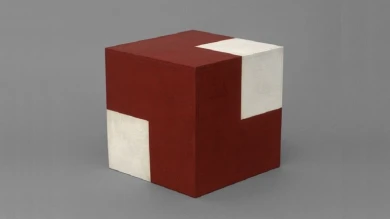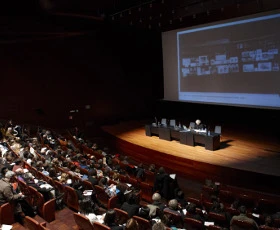-
July 11, 2013
Table 1: Encounters between Spain and Latin America
Moderated by: Jesús Carrillo
10:00 a.m.
Presentation
Paula Barreiro López, Jesús Carrillo, Fabiola Martínez Rodríguez and Gabriel Pérez Barreiro
10:30 – 11:10 a.m.
Keynote address
Olga Fernández López. Universidad Autónoma de Madrid
Notas sobre un relato migrante: vanguardias artísticas entre Latinoamérica y España
11:10 a.m. – 12:00 p.m.
Communications
Eamon McCarthy. Queens University, Belfast
Norah Borges: el arte de la negociación
Rodrigo Gutiérrez Viñuales. Universidad de Granada
La vanguardia oculta. Trayectos del diseño gráfico rioplatense (1920-1935)
12:00 – 12:30 p.m.
Break
12:30 – 2:00 p.m.
Communications
Irene Herner. Faculty of Political and Social Sciences, Universidad Nacional Autónoma de México, Mexico City
Siqueiros contra el fascismo y la guerra (1932-1939)
Joan Robledo-Palop. Yale University, New Haven
Frente a Frente y Nueva Cultura: narraciones transatlánticas de la violencia y el fascismo
Idoia Murga Castro. Universidad Autónoma de Madrid
Encuentros en escena: danza mexicana y exilio republicano
Miguel Cabañas Bravo. History Institute CCHS-CSIC, Madrid
Legados y esperanzas en los creadores españoles del exilio de 1939 en Cuba
2:00 – 3:30 p.m.
Lunch Break
3:30 – 5:00 p.m.
Communications
Ana María León. Massachusetts Institute of Technology, Cambridge
Antonio Bonet: el último indiano
Aitor Acilu and Juan Biain. Universidad de Navarra and Arantzazu Gaur Foundation
Jorge Oteiza. De San Agustín a Santiago. Miradas al origen: el pasado como amigo
Jennifer Josten. University of Pittsburgh
La migración de formas entre España y México: Mathias Goeritz y la difusión del arte abstracto en la posguerra
Imelda Ramírez. Universidad EAFIT, Medellín
Relatos de la escultura moderna en Colombia: Jorge Oteiza y Edgar Negret
5:00 – 5:30 p.m.
Break
5:30 – 6:40 p.m.
Communications
Ernesto Hernández Busto. Independent researcher
El sueño y la piedra: notas sobre João Cabral de Melo, Joan Miró, “Dau al Set” y la estética de la composición
María González Pendás. Columbia University, New York
Intercontinentes: ilusiones del exilio republicano en México a través de unas formas de hormigón
Fernando Herrero Matoses. University of Illinois at Urbana-Champaign
Alberto Greco y Julio Cortázar: el 'juego' y la trayectoria nómada de la vanguardia
6:40 – 8:00 p.m.
Responses to the communications and colloquium
-
July 12, 2013
Table 2: Modernity and Modernism(s): Displacement and Divergence
Moderated by: Paula Barreiro López.
9:00 – 9:40 a.m.
Keynote address
Michael Asbury. Research Centre for Transnational Art, Identity and Nation (TrAIN), University of the Arts, London
Contesting Notions of Hybridity in Brazilian Modern Art
9:40 – 11:10 a.m.
Communications
Lori Cole. Brandeis University, Waltham
¿Qué es la vanguardia? Ultraism Between Madrid and Buenos Aires
Mara Sánchez Llorens. Universidad Nebrija, Madrid
Cuando los límites del arte son invisibles. Cartografías universitarias latinoamericana
Kaira Cabañas. PhD. Princeton University
Modern and Mad: Ethics of Reception, Rio de Janeiro
Catrin Seefranz. University of the Arts, Zurich
Modernismo Pobre. The Emancipatory Practices of the “Avant-Garde in Bahia” in the 1950s
11:10 – 11:30 a.m.
Break
11:30 a.m. – 1:00 p.m.
Communications
Fabiola Martínez Rodríguez. Saint Louis University, Madrid
The Paradoxes of Modernism, and the Divided Legacies of Surrealism and Abstraction in Mexico
Cecilia Fajardo Hill. Independent art historian and curator, Los Angeles
Las ‘otras’ modernidades
María Iñigo Clavo. Spanish University of Distance Education and Universidade de São Paulo
Las preposiciones de la modernidad
Edith Wolfe. Tulane University, New Orleans
Latin America’s Discrepant Cosmopolitanisms and the Limits of Center and Periphery Models for understanding the Avant-Garde
1:00 – 2:00 p.m.
Responses to the communications and colloquium
2:00 – 3:30 p.m.
Lunch Break
-
July 12, 2013
Table 3: Museography, representation and curatorial narratives
Moderated by: María Dolores Jiménez-Blanco.
3:30 – 4:10 p.m.
Keynote address
Gabriel Pérez Barreiro. Patricia Phelps de Cisneros Collection Foundation
Algunos apuntes sobre exposiciones de arte 'latinoamericano': constelaciones, estrellas, temas y variaciones
4:10 – 5:40 p.m.
Communications
Dafne Cruz Porchini. Universidad Nacional Autónoma de México, Mexico City
La Exposición Internacional del Surrealismo en México (1940). Símbolo de un cambio de paradigmas
Aleca Le Blanc. Getty Research Institute, Los Angeles
Under Construction: Calder at Rio de Janeiro’s Museu de Art Moderna in 1959
Carmen Juliá. Tate, London
Julio Plaza y el arte postal: redes de intercambio transnacional
Gina Tarver. Texas State University, San Marcos
Espacios ambientales en el Museo de Arte Moderno de Bogotá: fomentando una neo-vanguardia internacional en Colombia
5:40 – 6:10 p.m.
Break
6:10 – 7:40 p.m.
Communications
Miriam Basilio. New York University
El canon latinamericano en desarrollo: exponiendo la colección en el Museo de Arte Moderno, 1945-1954
Blanca Serrano Ortiz de Solórzano. Institute of Fine Arts, New York University
La abstracción geométrica cubana: intercambios artísticos internacionales y políticas museológicas locales
Lucas Baden. Staatliche Hochschule für Gestaltung (HfG), Karlsruhe
'Vochito' contra 'Murales'- de 'Motor' a 'Promotor': Fernando Gamboa, la vanguardia del arte méxicano y la Bienal de Venecia
Francisco Godoy Universidad Autónoma de Madrid
El modelo constelar: Mari Carmen Ramírez y su estela
7:40 – 8:00 p.m.
Break
8:00 – 9:00 p.m.
Responses to the communications and colloquium -
July 13, 2013
Table 4: Genealogies and Discourses of the Avant-garde
Moderated by: Fabiola Martínez Rodríguez.
10:30 – 11:10 a.m.
Keynote address
Andrea Giunta. University of Texas, Austin
Transatlánticos / Transcontinentales. Una discusión sobre diálogos y genealogías
11:10 – 12:20 p.m.
Communications
Harper Montgomery. Hunter College, New York
The Critic and the Visionary Avant-garde, a Transnational Network
Manuel Gutiérrez Silva. Rice University, Houston
Vision and Distinction: Avant-garde Artwriting and the Deconstruction of Visual Culture in Post-revolutionary Mexico
Cecilia Braschi. University of Paris I, Panthéon-Sorbonne
La ‘síntesis de las artes’ en las revistas brasileñas de posguerra: herencias vanguardistas y postulados locales
12:20 – 12:40 p.m.
Break
12:40 – 2:00 p.m.
Communications
Daniela Lucena. Universidad de Buenos Aires, CONICET
Tensiones entre arte/política en la asociación arte concreto-invención
Paula Barreiro López. History Institute CCHS-CSIC, Madrid
Hacia la izquierda: el acomodo de una vanguardia “sans rivages” en el discurso estético marxista de los años sesenta
Jaime Vindel. Universidad de León
Conciencia ética y conciencia estética en la vanguardia argentina de los años sesenta. Una crítica del esteticismo de la teoría de la vanguardia posmarxista
2:00 – 4:00 p.m.
Lunch Break
4:00 – 5:10 p.m.
Communications
Mariola V. Alvarez. Rice University, Houston
Neoconcrete Books and the Politics of Participation
Ornela S. Barisone. Universidad Nacional de Rosario, National Board of Scientific and Technical Research, Institute of Latin American Literature, Universidad Autónoma de Entre Ríos
Discursos de la vanguardia e intercambios transnacionales ‘fuera de foco’: sobre el invencionismo y la propuesta integrativa de E. A. Vigo
Fernanda Nogueira. Universidade de São Paulo
La vanguardia más allá de la vanguardia. El caso del Poema/Processo en Brasil
5:10 – 5:30 p.m.
Break
5:30 p.m. – 6:40 p.m.
Communications
José Luis de la Nuez Universidad Carlos III, Madrid
La difusión de las neovanguardias en América Latina y su repercusión en la crítica
Eve Kalyva. Universidad de Buenos Aires
Unas reflexiones sobre la vanguardia después el arte conceptualMara Polgovsky Ezcurra. University of Cambridge
Materia política: Marcos Kurtycz, León Ferrari y el retorno de lo (sur)real
6:40 p.m. – 8:00 p.m.
Responses to the communications and colloquium
8:00 – 8:15 p.m.
Closing act
Transatlantic Encounters: Avant-garde Discourses in Spain and Latin America
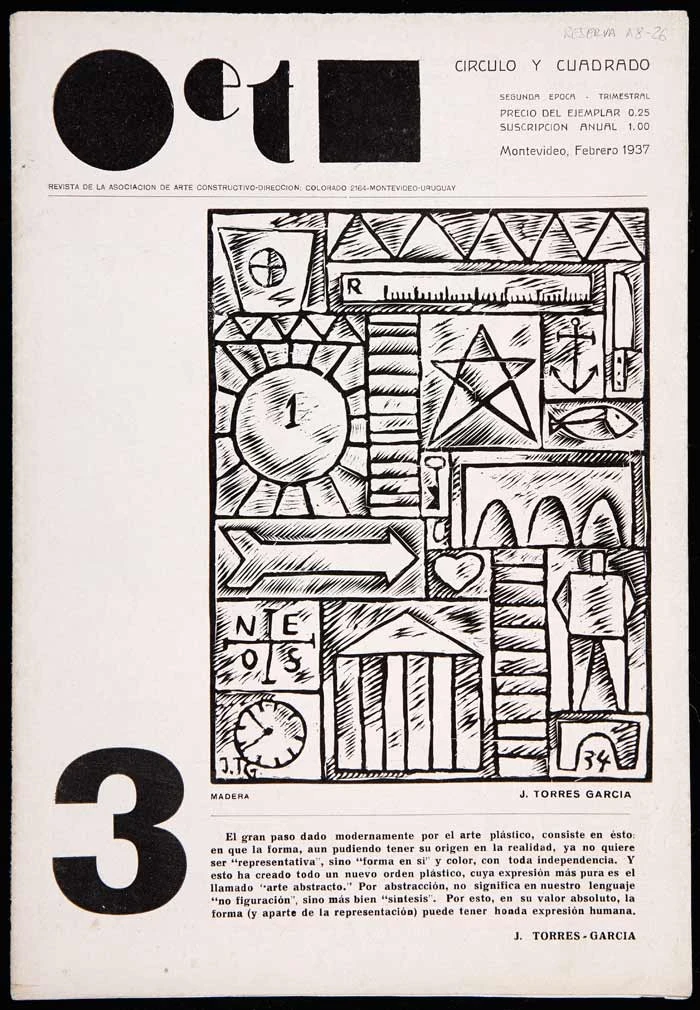
Held on 11, 12, 13 Jul 2013
This international event, which brings together researchers, artists and curators from both sides of the Atlantic, seeks to stimulate reflection about the notion of avant-garde in relation to the experience and discourse of modernity between 1920 and 1970.
The main object of this reflection is the political and aesthetic avant-garde that formed in the context of the first and second Avant-gardes (or Neo-avantgardes), and also the role that the exchanges between Spain and Latin America played in the construction of this notion. Through keynote addresses and communications, the various sessions will present the latest research, thus contributing to a better understanding of the relationships and exchanges between Spain and Latin America (which have been little studied to date), and to a reconsideration of historiography and the dominant discourses of modernism and modernity.
Organised by
CSIC History Institute (1), Saint Louis University Madrid, Patricia Phelps de Cisneros Collection and Museo Reina Sofía
(1) Supported by the National Plan for Research, Development and Innovation Project After the Republic: networks and two-way paths in Spanish art since 1931


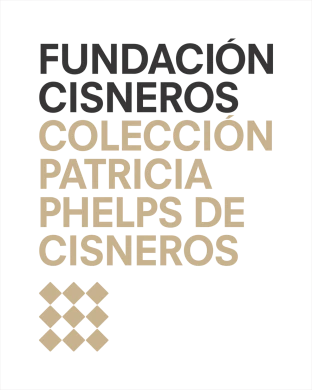
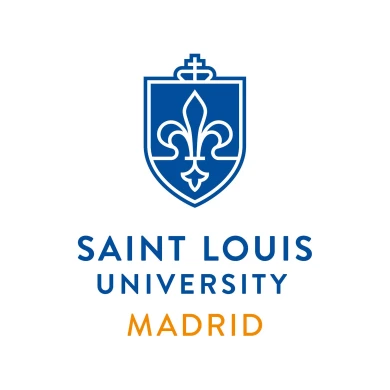
Participants
Scientific committee
Paula Barreiro López. History Institute at the Human and Social Sciences Centre, CSIC (Spanish National Research Council)
Fabiola Martínez Rodríguez. Saint Louis University, Madrid
Jesús María Carrillo Castillo. Museo Reina Sofía
Gabriel Pérez Barreiro. Patricia Phelps de Cisneros Collection Foundation
Más actividades

Difficulty. Forms and Political Effects of Deviation in Writing and Contemporary Art
23 February – 14 December 2026 – Check programme
Difficulty. Forms and Political Effects of Deviation in Writing and Contemporary Art is a study group aligned towards thinking about how certain contemporary artistic and cultural practices resist the referentiality that dominates the logics of production and the consumption of present-day art. At the centre of this proposal are the concepts of difficulty and deviation, under which it brings together any procedure capable of preventing artistic forms from being absorbed by a meaning that appears previous to and independent from its expression. By ensuring the perceptibility of their languages, difficulty invites us to think of meaning as the effect of a signifying tension; that is, as a productive and creative activity which, from the materiality of art objects, frees aesthetic experience from the representational mandate and those who participate in it from the passiveness associated with tasks of mimesis and decoding.
The economy of the referential norm translates the social logic of capitalism, where insidious forms of capturing subjectivity and meaning operate. In the early 1980s, and adopting a Marxist framework, poet Ron Silliman highlighted how this logic entailed separating language from any mark, gesture, script, form or syntax that might link it to the conditions of its production, rendering it fetichised (as if without a subject) and alienating its users in a use for which they are not responsible. This double dispossession encodes the political strategy of referential objectivity: with no subject and no trace of its own consistency, language is merely an object, that reality in which it disappears.
The political uses of referentiality, more sophisticated today than ever before, sustain the neoliberal-extractivist phase of capitalism that crosses through present-day societies politically, economically and aesthetically. Against them, fugitive artistic practices emerge which, drawing from Black and Queer studies and other subaltern critical positions, reject the objective limits of what exists, invent forms to name what lies outside what has already been named, and return to subjects the capacity to participate in processes of emission and interpretation.
Read from the standpoint of artistic work, the objective capture of referentiality may be called transparency. Viewed from a social contract that reproduces inequality in fixed identity positions, transparent in this objectivity are, precisely, the discourses that maintain the status quo of domination. Opposite the inferno of these discourses, this group aims to collectively explore, through deviant or fugitive works, the paradise of language that Monique Wittig encountered in the estranged practices of literature. For the political potency of difficulty — that is, its contribution to the utopia of a free language among equals — depends on making visible, first, its own deviations; from there, the norm that those deviations transgress; and finally, the narrowness of a norm which in no way exhausts the possibilities ofsaying, signifying, referring and producing a world.
From this denouncement of referential alienation, fetishisation and capture, Difficulty. Forms and Political Effects of Deviation in Writing and Contemporary Art turns its attention to the strategies of resistance deployed by contemporary artists and poets. Its interest is directed towards proposals as evidently difficult or evasive as those of Gertrude Stein, Lyn Hejinian, Theresa Hak Kyung Cha, Kameelah Janan Rasheed, Kathy Acker, María Salgado and Ricardo Carreira, and as seemingly simple as those of Fernanda Laguna, Felix Gonzalez Torres and Cecilia Vicuña, among other examples that can be added according to the desires and dynamics of the group.
The ten study group sessions, held between February and December, combine theoretical seminars, work with artworks from the Museo Reina Sofía’s Collections and exhibitions, reading workshops and public programs. All these formats serve as spaces of encounter to think commonly about certain problems of poetics — that is, certain political questions — of contemporary writing and art.
Difficulty. Forms and Political Effects of Deviation in Writing and Contemporary Art inaugurates the research line Goodbye, Representation, through which the Museo Reina Sofía’s Studies Directorship seeks to explore the emergence of contemporary artistic and cultural practices which move away from representation as a dominant aesthetic-political strategy and redirect their attention toward artistic languages that question the tendency to point, name and fix, advocating instead for fugitive aesthetics. Over its three-year duration, this research line materializes in study groups, seminars, screenings and other forms of public programming.

Institutional Decentralisation
Thursday, 21 May 2026 – 5:30pm
This series is organised by equipoMotor, a group of teenagers, young people and older people who have participated in the Museo Reina Sofía’s previous community education projects, and is structured around four themed blocks that pivot on the monstrous.
This fourth and final session centres on films that take the museum away from its axis and make it gaze from the edges. Pieces that work with that which is normally left out: peripheral territories, unpolished aesthetics, clumsy gestures full of intent. Instead of possessing an institutional lustre, here they are rough, precarious and strange in appearance, legitimate forms of making and showing culture. The idea is to think about what happens when central authority is displaced, when the ugly and the uncomfortable are not hidden, when they are recognised as part of the commons. Film that does not seek to be to one’s liking, but to open space and allow other ways of seeing and inhabiting the museum to enter stage.

Intergenerationality
Thursday, 9 April 2026 – 5:30pm
This series is organised by equipoMotor, a group of teenagers, young people and older people who have participated in the Museo Reina Sofía’s previous community education projects, and is structured around four themed blocks that pivot on the monstrous.
The third session gazes at film as a place from which to dismantle the idea of one sole history and one sole time. From a decolonial and queer perspective, it explores films which break the straight line of past-present-future, which mix memories, slow progress and leave space for rhythms which customarily make no room for official accounts. Here the images open cracks through which bodies, voices and affects appear, disrupting archive and questioning who narrates, and from where and for whom. The proposal is at once simple and ambitious: use film to imagine other modes of remembering, belonging and projecting futures we have not yet been able to live.

Remedios Zafra
Thursday March 19, 2026 - 19:00 h
The José Luis Brea Chair, dedicated to reflecting on the image and the epistemology of visuality in contemporary culture, opens its program with an inaugural lecture by essayist and thinker Remedios Zafra.
“That the contemporary antifeminist upsurge is constructed as an anti-intellectual drive is no coincidence; the two feed into one another. To advance a reactionary discourse that defends inequality, it is necessary to challenge gender studies and gender-equality policies, but also to devalue the very foundations of knowledge in which these have been most intensely developed over recent decades—while also undermining their institutional support: universities, art and research centers, and academic culture.
Feminism has been deeply linked to the affirmation of the most committed humanist thought. Periods of enlightenment and moments of transition toward more just social forms—sustained by education—have been when feminist demands have emerged most strongly. Awareness and achievements in equality increase when education plays a leading social role; thus, devaluing intellectual work also contributes to harming feminism, and vice versa, insofar as the bond between knowledge and feminism is not only conceptual and historical, but also intimate and political.
Today, antifeminism is used globally as the symbolic adhesive of far-right movements, in parallel with the devaluation of forms of knowledge emerging from the university and from science—mistreated by hoaxes and disinformation on social networks and through the spectacularization of life mediated by screens. These are consequences bound up with the primacy of a scopic value that for some time has been denigrating thought and positioning what is most seen as what is most valuable within the normalized mediation of technology. This inertia coexists with techno-libertarian proclamations that reactivate a patriarchy that uses the resentment of many men as a seductive and cohesive force to preserve and inflame privileges in the new world as techno-scenario.
This lecture will address this epochal context, delving into the synchronicity of these upsurges through an additional parallel between forms of patriarchal domination and techno-labor domination. A parallel in which feminism and intellectual work are both being harmed, while also sending signals that in both lie emancipatory responses to today’s reactionary turns and the neutralization of critique. This consonance would also speak to how the perverse patriarchal basis that turns women into sustainers of their own subordination finds its equivalent in the encouraged self-exploitation of cultural workers; in the legitimation of affective capital and symbolic capital as sufficient forms of payment; in the blurring of boundaries between life and work and in domestic isolation; or in the pressure to please and comply as an extended patriarchal form—today linked to the feigned enthusiasm of precarious workers, but also to technological adulation. In response to possible resistance and intellectual action, patriarchy has associated feminists with a future foretold as unhappy for them, equating “thought and consciousness” with unhappiness—where these have in fact been (and continue to be) levers of autonomy and emancipation.”
— Remedios Zafra

27th Contemporary Art Conservation Conference
Wednesday, 4, and Thursday, 5 March 2026
The 27th Contemporary Art Conservation Conference, organised by the Museo Reina Sofía’s Department of Conservation and Restoration, with the sponsorship of the Mapfre Foundation, is held on 4 and 5 March 2026. This international encounter sets out to share and debate experience and research, open new channels of study and reflect on conservation and the professional practice of restorers.
This edition will be held with in-person and online attendance formats, occurring simultaneously, via twenty-minute interventions followed by a five-minute Q&A.
